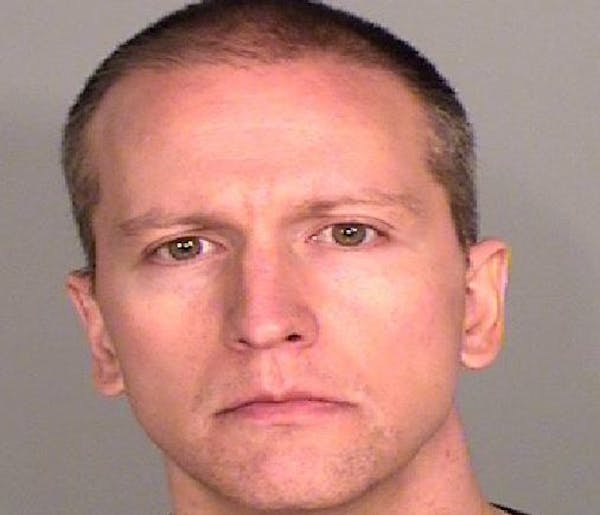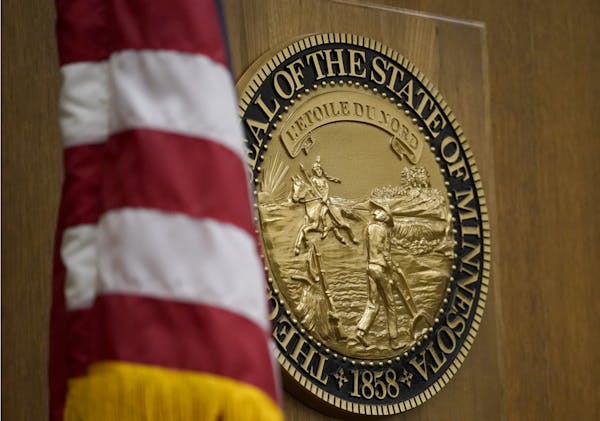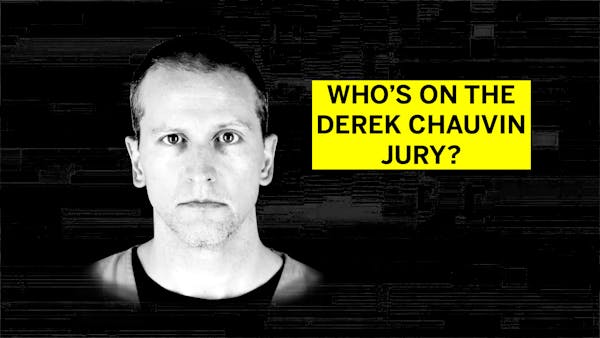A 15th and final juror was chosen Tuesday in the murder trial of ex-Minneapolis police officer Derek Chauvin in the death of George Floyd, with proceedings now recessed until the attorneys' opening statements scheduled for Monday.
A white man in his 20s was selected late in the morning after a relatively brief round of questioning, ending a sometimes tedious process that lasted more than two weeks during which many dozens of jury candidates were quizzed.
The newest juror, an accountant who is married, rounds out the jury, but he will be dismissed at the outset Monday unless someone drops out before then.
Under questioning before a global audience watching the livestream, the man said he thinks analytically thanks to his profession and could weigh the evidence fairly. He said that while he understands why athletes kneel during the national anthem to protest racial injustice in America, he wishes they would do so in a different manner.
"I think it's more of a respect of those that have come before us and the system that we have in the United States," he said. "I have a great sense of pride in being a United States citizen."
He said he has a neutral opinion of Floyd and a generally favorable view of the Black Lives Matter movement, but he believes it was "a contributing factor" in the violent unrest that followed Floyd's death.
Concerning the mission behind the alternative Blue Lives Matter rallying cry on behalf of police, he wrote months ago in his juror questionnaire that it "has not done enough to enhance the conversation about other issues such as gun control."
There are six people of color and nine white people among the 15 jurors selected. Nine of the jurors are women, and six are men. Chauvin is white. Floyd was Black.
The jurors are: A multi-race woman in her 20s, a multi-race woman in her 40s, two Black men in their 30s, a Black man in his 40s, a Black woman in her 60s, four white women in their 50s, a white woman in her 40s, a white man in his 30s, two white men in their 20s, and a white woman in her 20s.
The judge will keep 14 jurors, including two alternates. Before deliberations, the remaining alternates will be dismissed.
Then 12 jurors will be sequestered while they deliberate whether to convict or acquit the fired Minneapolis police officer on any or all of the charges — second-degree murder, third-degree murder and manslaughter.
Even though Cahill now has the number of jurors he wanted, the judge said in the Tuesday's closing moments that he is not releasing the larger jury pool from the oath they took until Monday's resumption of proceedings.
Ben Crump, the attorney who helped the Floyd family win $27 million in a lawsuit settlement with the city this month, said upon final juror's selection, "After hearing the facts, we hope and expect the jury to deliver a just verdict. This is not a hard case. George Floyd had more witnesses to his death than any other person ever — white or Black. We all saw the same thing — the indisputable and unjustified torture and murder by a police officer of a Black man who was handcuffed, restrained and posed no harm.
"If George Floyd had been white, the facts would be undisputed and justice would be swift. We expect the same for George."
The first potential juror questioned Tuesday, a man from Minneapolis who works as a pipe fitter, expressed strong support for police officers and held disdain for the mainstream news media and for the perpetrators who inflicted so much damage to the city during the civil unrest after Floyd's death.
"I don't think a policeman wakes up in the morning to have a tragedy happen during the day," he said, when asked about his impression of Chauvin after watching the widely viewed bystander video that has loomed large over jury selection.
He also said he doesn't believe police, for the most, part target minorities unfairly. "I just don't think they want to single out one race over another. … It's not the color of the person, it's actions."
Asked of his thoughts about Floyd, he said, "If I struggled for who knows how long, what would happen to me? Why is somebody resisting?"
Cahill excused the man, citing his bias in favor of police. The judge added that he was reversing a dismissal ruling on Monday and restoring a discretionary strike for the defense, which reluctantly used one of the last few it holds.
The next jury candidate admitted being extremely nervous about being part of the selection process and was concerned about her family's safety should she be chosen and her identity ultimately be revealed. After two out-of-earshot discussions between the attorneys and Cahill, the judge dismissed her.
She was followed by a man who said the viral video "and everything that I saw over the summer definitely did affect me in a lot of ways. ... I know that kind of goes against being fair and impartial." Cahill needed little time to excuse the man.
At the end of the day Monday, Cahill said it was "12 or bust" on Tuesday, referring to the number of jury candidates who were told to report to the courthouse for questioning.
"We're going to call in 12, and we're going to go through all 12," if necessary, the judge said. Lawyers were told to be prepared to work a longer day to seat the final juror. That turned out not to be the case.
The lone juror selected Monday among the eight quizzed was a white woman in her 20s. She is a newlywed and a social worker in Wright County whose clients are coping with mental health difficulties.
She said her profession had trained to her to be empathetic. "I'm always thinking about the person and where he came from," she said of her views on Chauvin and his actions the day Floyd died. "Was it his training?"
When the woman talked about hearing both sides at trial, defense lawyer Eric Nelson reminded her that Chauvin does not have to present evidence and the state has the burden of proving his guilt beyond a reasonable doubt.
The juror responded, "Mr. Chauvin's side is his presumption of innocence. That is what I meant by that."
The other defendants in the case — J. Alexander Kueng, Thomas Lane and Tou Thao — are scheduled to be tried in August in the same proceedings on charges of aiding and abetting murder and manslaughter.
Paul Walsh • 612-673-4482
Rochelle Olson • 612-673-1747

Want to share info with the Star Tribune? How to do it securely

'Safe recovery sites' would offer syringes, naloxone and more to people using drugs. The plan could be in peril.
New Minnesota GOP leaders seek peace with party's anti-establishment wing

Who is Republican Lisa Demuth, Minnesota's first House speaker of color?



